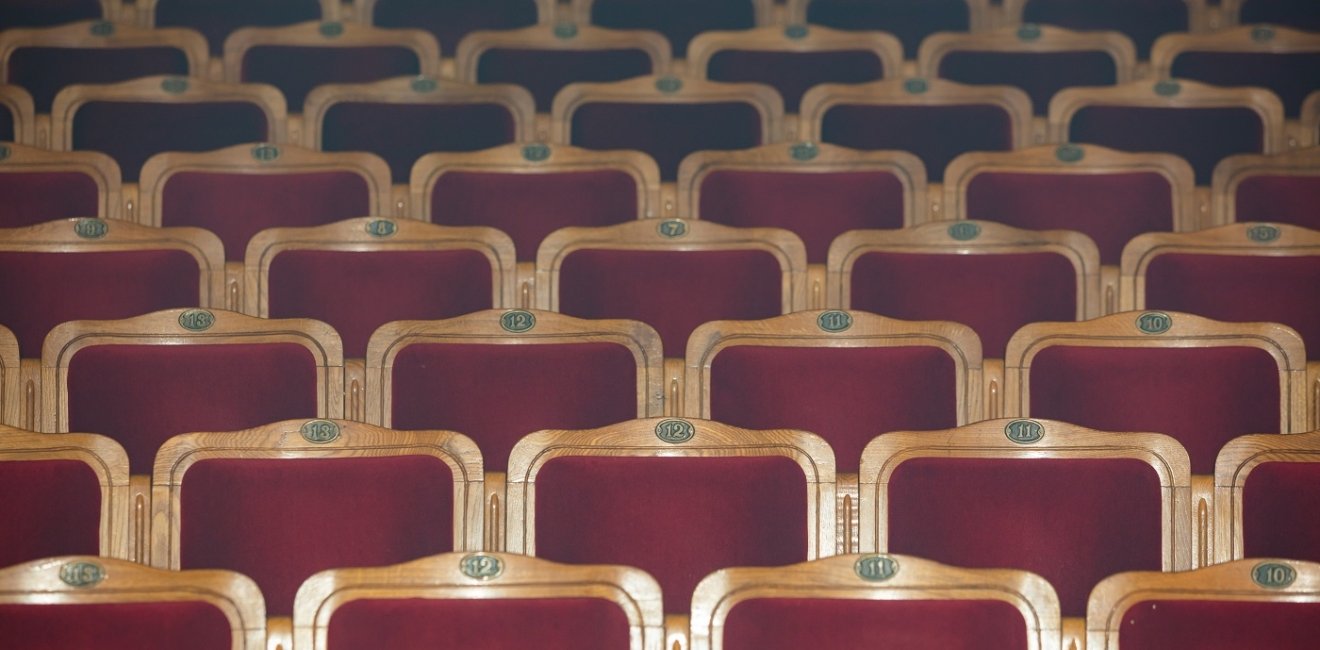
A blog of the Kennan Institute
How to be festive in a time of war? This question is being asked by millions of Ukrainians as their country closes out a second year of full-scale war with a vengeful Russia. Small gatherings of close friends and family take place throughout the country. Communal celebrations so important in the past are understandably more hit and miss. This is as it must be, absent a lull in the attack on Ukrainian infrastructure. Nevertheless, theaters and concert venues large and small throughout Ukraine are managing to keep shows on schedule, despite the limitations of martial law. Such remarkable resilience has become a way of resisting the Russian attack.
Lviv’s puppetry community responded energetically to the war from the very beginning, sewing uniforms for soldiers, launching productions despite ongoing rocket attacks on its city, and creating new works by finding humor in the travails of war. One recent production at the Lviv Puppetry Theater, Shmata. One Evening in a Bomb Shelter by celebrated playwright Andriy Bondarenko, places five strangers in a bomb shelter talking, quarreling, joking, and sharing disinfectant.
The theater hosted the international Festival STRUS for young audiences just last month. Some ticket holders receive last-minute notifications on their cellphones that a performance was cancelled as the city was attacked. Eventually, the show will go on and tickets will be honored later.
As Christmas neared, the theater turned to a vertep nativity play. As noted in a previous post, the local vertep puppetry tradition grew out of medieval puppetry depictions of the Chrisian nativity and other mystery plays. In this 500- -year-old reenactment of the first Christmas, puppets with painted faces, held on sticks, are manipulated to the accompaniment of Ukrainian song and improvised narration. The plays often were presented in boxes that were divided between an upper level, the celestial, and a lower level, representing local life. Similar traditions may be found in neighboring Poland and Belarus.
A few nights before Christmas 2023, the Lviv Puppetry Theater turned to colleagues from Kharkiv to tell the nativity story. Directed by Oksana Dmitrieva, with music by Marichka Chichkova and costumes by Natalia Denisova, the production revives this tradition as an experimental work with a minimum of words (the only text is from biblical verse and Christmas carols). The Kharkiv puppeteers thus embrace western Ukraine’s traditional storytelling while bringing fresh takes from their eastern Ukrainian home.
This Kharkiv-Lviv joint production—which has been supported by the Goethe Institute’s stabilization fund—presents the nativity story as ritual, highlighting the notion of rebirth. Christ’s birth and eventual victory over death is the story’s meaning of faith in the inevitable victory of Good and Light. As the play’s summary notes, “the theme of Christmas is used to understand the events that are currently taking place in the war-torn regions of Ukraine. In a country wounded by war, Christ is born constantly, here and now.”
Tradition and ritual have provided solace in trying times since the beginning of human community. Productions drawing on vertep traditions extend strength to Ukrainians struggling to find joy in a holiday season dominated by war. A new take on these traditions, such as that offered by the Kharkiv puppeteers, speaks powerfully to a future that remains unknown. As the puppetry scene in Lviv has revealed since the first days of the war, a new Ukrainian culture is taking shape, one, like the holiday season itself, that simultaneously looks back to tradition and forward through innovation.
The opinions expressed in this article are those solely of the author and do not reflect the views of the Kennan Institute.
Author

Former Wilson Center Vice President for Programs (2014-2017); Director of the Comparative Urban Studies Program/Urban Sustainability Laboratory (1992-2017); Director of the Kennan Institute for Advanced Russian Studies (1989-2012) and Director of the Program on Global Sustainability and Resilience (2012-2014)

Kennan Institute
After more than 50 years as a vital part of the Wilson Center legacy, the Kennan Institute has become an independent think tank. You can find the current website for the Kennan Institute at kennaninstitute.org. Please look for future announcements about partnership activities between the Wilson Center and the Kennan Institute at Wilson Center Press Room. The Kennan Institute is the premier US center for advanced research on Eurasia and the oldest and largest regional program at the Woodrow Wilson International Center for Scholars. The Kennan Institute is committed to improving American understanding of Russia, Ukraine, Central Asia, the South Caucasus, and the surrounding region through research and exchange. Read more

Explore More in Focus Ukraine
Browse Focus Ukraine
Talking to the Dead to Heal the Living

Ukrainian Issue in Polish Elections


